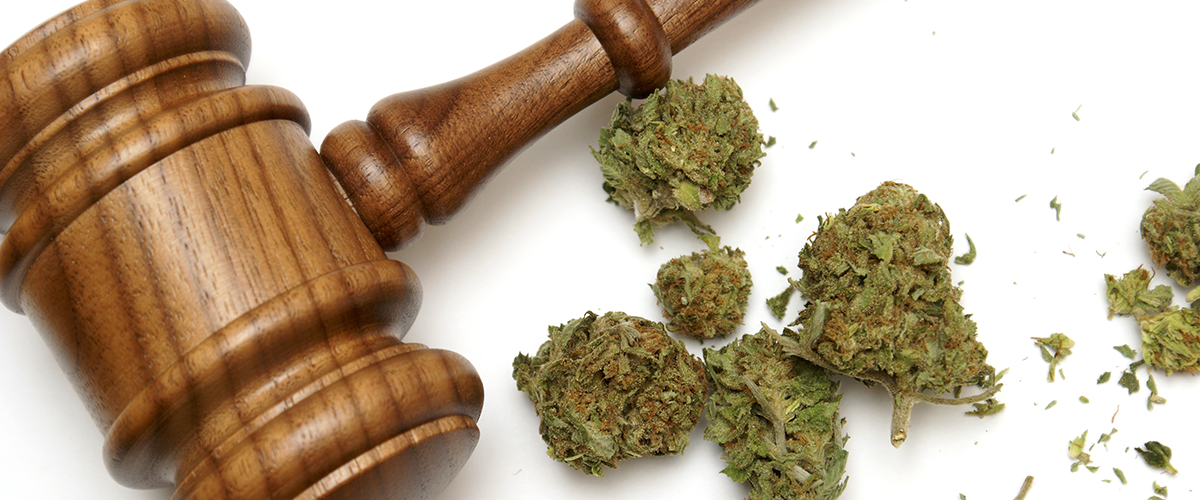A New Jersey appeals court has ruled that state officials must reevaluate marijuana’s legal classification now that marijuana is being legally used for medical purposes.
Recent developments in New Jersey indicate that marijuana reform could be right around the corner, as a New Jersey appeals court ruled earlier this month that the state must reevaluate its legal classification of marijuana since it is now being legally used as a medical treatment.
The federal government and the state of New Jersey classify marijuana as a Schedule I substance, the most restrictive category defined for substances with “a high potential or abuse” and “no accepted medical use.” Despite the fact that medical marijuana has been legal in New Jersey since 2010, New Jersey’s former director of the Division of Consumer Affairs had previously stated that the state must defer to the federal government’s classification of marijuana.
That director’s decision was wrong, according to the groundbreaking ruling by the appellate court. Citing that marijuana’s health benefits are “abundantly and glaringly apparent,” the court ruled that the state must reconsider marijuana’s legal classification.
The medical benefits of marijuana weren’t recognized in 1971 when New Jersey first adopted the federal government’s classification, the appellate court’s ruling stated, and that classification should have been reevaluated after cannabis started being used for medical purposes.
“Since the state has determined that marijuana has accepted uses in medical treatment, then it should be appropriately scheduled,” attorney Joseph Linares said.
Linares represents Steven Kadonsky, who is currently serving a life sentence under New Jersey drug “kingpin” statute. In 2014, Kadonsky petitioned the state Division of Consumer Affairs to reclassify marijuana as a less dangerous drug. The director at the time, Steven C. Lee, denied the request last year.
Before passing away this summer, Attorney Roger Barbour had filed an amicus curiae brief, sometimes referred to as a “friend of the court” brief, on behalf of his 17-year-old daughter. Barbour requested that marijuana be rescheduled from Schedule I in New Jersey, which would permit the nurse at his daughter’s school to administer the cannabis oil she needed for a seizure disorder.
The appellate court’s ruling does not change marijuana’s legal status in New Jersey by itself, but New Jersey state officials will be required to reconsider marijuana’s scheduling and provide reasons as to why marijuana should remain Schedule I if the state recognizes its therapeutic properties. There are approximately 9,5000 patients registered with New Jersey’s medical marijuana program.
“What this decision does recognize is the widespread acceptance of marijuana use in medical treatment,” said Linares.
This court’s ruling comes just weeks after New Jersey voters elected to replace outgoing Governor Chris Christie with cannabis-friendly Philip D. Murphy. While Christie has been a staunch opponent of cannabis reform since taking office in 2010, Murphy regularly advocated for marijuana legalization during his campaign.
The election of Murphy could also have a significant impact on the current efforts of New Jersey state lawmakers to get a recreational marijuana law on the books. Democrat Stephen Sweeney, President of the state’s Senate, has said he intends to pass an adult use marijuana measure within the first 100 days of the Murphy administration. Murphy’s term begins at noon on January 16, 2018.
Marijuana Law in the U.S.
Marijuana has been prohibited under federal law since the passing of the 1970 Controlled Substances Act. Despite those restrictions, New Jersey and 28 other states have passed their own laws to legalize the use of marijuana for medical purposes. Eight have legalized recreational marijuana.
The support for marijuana legalization is currently at a record high among American voters. This summer, U.S. Sen. Cory Booker introduced legislation that would federally legalize marijuana and expunge federal marijuana convictions.
You can learn more about U.S. cannabis laws by visiting our education page or keep up with the latest cannabis law developments through our news page.






